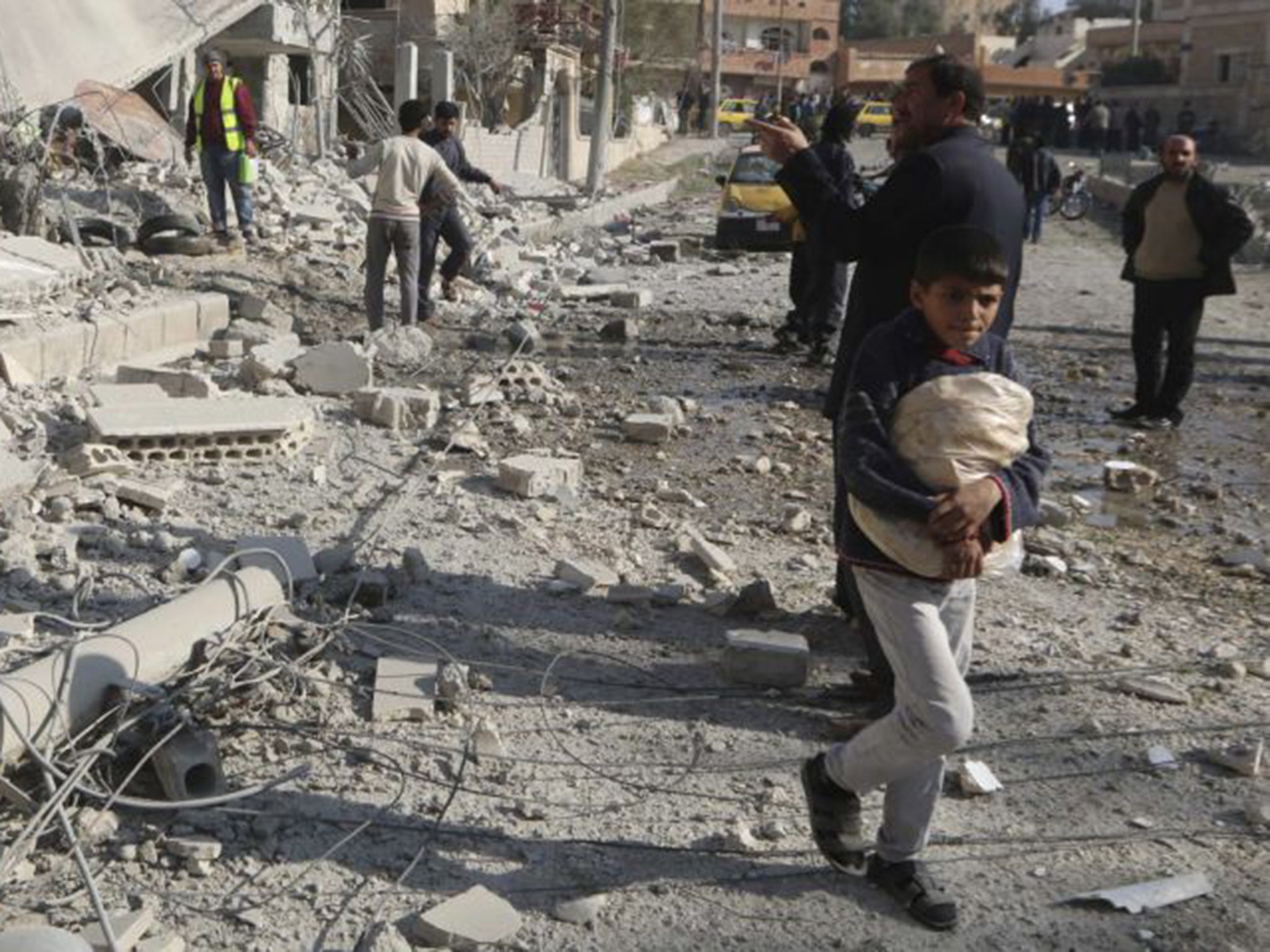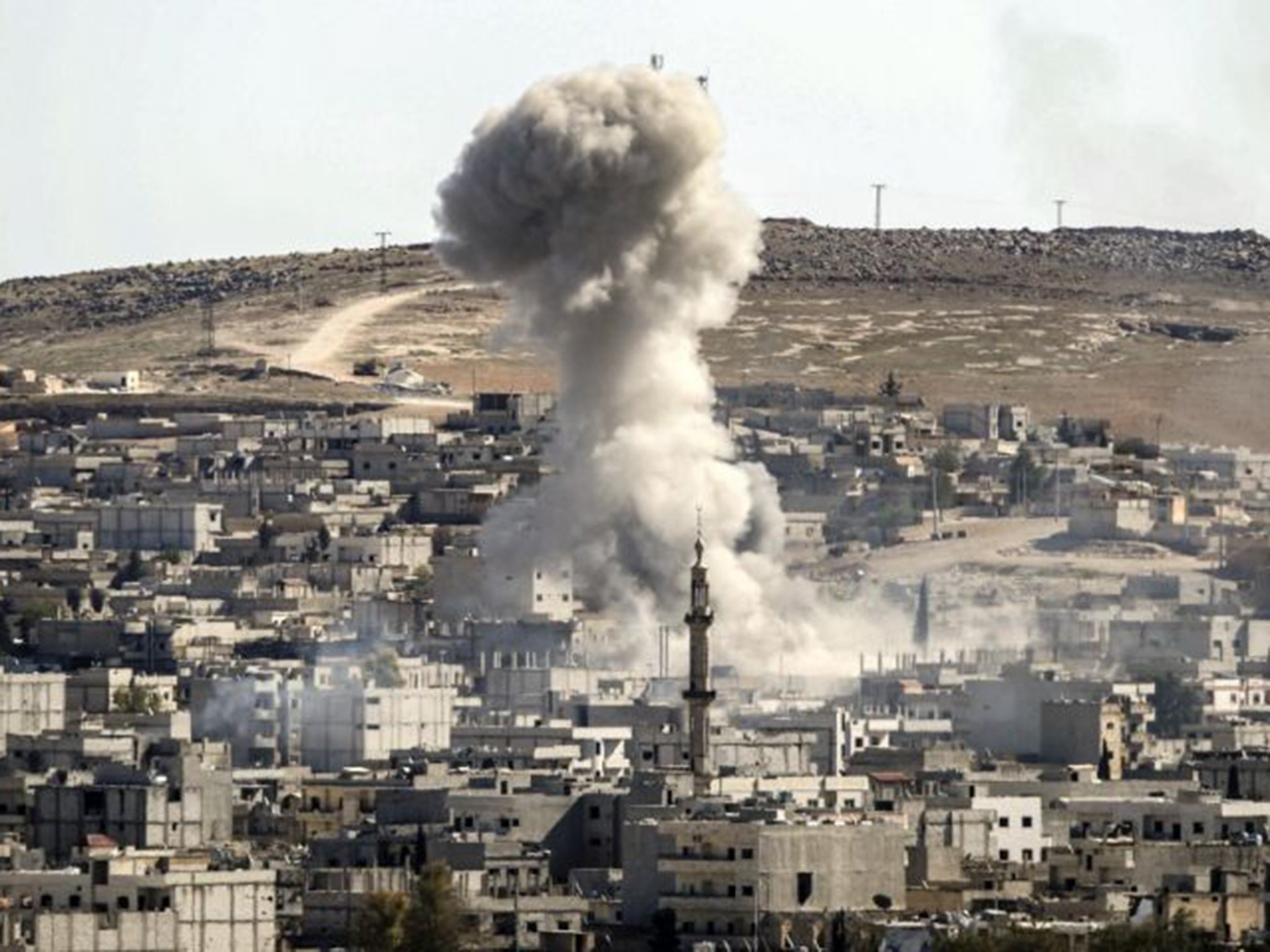Islam's Dysfunctional State: In Isis-controlled Syria and Iraq everyday life is falling apart
Basic services such as water and rubbish collection are failing and residents are struggling to find food

Your support helps us to tell the story
From reproductive rights to climate change to Big Tech, The Independent is on the ground when the story is developing. Whether it's investigating the financials of Elon Musk's pro-Trump PAC or producing our latest documentary, 'The A Word', which shines a light on the American women fighting for reproductive rights, we know how important it is to parse out the facts from the messaging.
At such a critical moment in US history, we need reporters on the ground. Your donation allows us to keep sending journalists to speak to both sides of the story.
The Independent is trusted by Americans across the entire political spectrum. And unlike many other quality news outlets, we choose not to lock Americans out of our reporting and analysis with paywalls. We believe quality journalism should be available to everyone, paid for by those who can afford it.
Your support makes all the difference.Isis’s vaunted exercise in state-building appears to be crumbling, as living conditions deteriorate across the territories under its control, exposing the shortcomings of a group that devotes most of its energies to fighting battles and enforcing strict rules.
Residents say services are collapsing, prices are soaring and medicines are scarce in towns and cities across the “caliphate” that Isis proclaimed in Iraq and Syria, belying the group’s boasts that it is delivering a model form of governance for Muslims.
Slick videos depicting functioning governing offices and the distribution of aid fail to match the reality of growing deprivation and disorganised, erratic leadership, the residents say. A trumpeted Isis currency has not materialised, nor have the passports the group promised. Schools barely function, doctors are few and disease is on the rise.
In the Iraqi city of Mosul, the water has become undrinkable because supplies of chlorine have dried up, according to a journalist living there, who spoke on the condition of anonymity. Hepatitis was spreading and flour for bread was becoming increasingly scarce, he said. “Life in the city is nearly dead, and it is as though we are living in a giant prison,” he said.
In the Syrian city of Raqqa, the group’s self-styled capital, water and electricity are available for no more than three or four hours a day, rubbish piles up uncollected and the city’s poor scavenge for scraps on streets crowded with people hawking anything they can find to sell, residents say.
Videos filmed in secret by an activist group show desperate women and children clamouring for handouts of food, while photographs posted on the internet portray foreign jihadists eating lavish spreads, a disparity that is starting to stir resentment.

Much of the assistance that is being provided comes from Western aid agencies, who discreetly continue to help areas of Syria under Isis control. The US funds healthcare clinics and provides blankets, plastic sheeting and other items to enable the neediest citizens to weather the winter, according to US officials.
The government workers who help sustain what is left of the crumbling infrastructure, in Syrian as well as Iraqi cities, continue to be paid by the Syrian government, travelling each month to collect their pay from offices in government-controlled areas.
“Isis doesn’t know how to do this stuff,” the US official said. “When stuff breaks down they get desperate. It doesn’t have a whole lot of engineers and staff to run the cities, so things are breaking down.”
There are also signs of falling morale among at least some of the fighters whose expectations of quick and easy victories have been squashed by US-led air strikes. A notice distributed in Raqqa this month called on fighters who were shirking their duties to report to the front lines, and a new police force was created to go house-to-house to root them out.
There is no indication that the hardships are likely to lead to rebellion, at least not soon. Fear of draconian punishments and the absence of alternatives deter citizens from complaining too loudly.
But the deterioration is undermining at least one important aspect of Isis’s self-proclaimed identity – as a state, dedicated to reviving the seventh-century caliphate that once ruled the Muslim world.
The group’s momentum on the battlefield has been slowed by the air campaign, which has helped reverse or stall Isis offensives on numerous fronts, from the town of Kobani in northern Syria to the farmland south of Baghdad.
That the group is also failing to deliver services in the areas it does control calls into question the sustainability of its larger ambition.
Isis “is not this invincible monster that can control everything and defeat everyone,” said an activist in the eastern Syrian city of Deir al-Zour, describing the ineffectual delivery of services. “The whole idea that it is well organised and an administrative entity is wrong. It is just an image.”
It is in Raqqa, the first major city to fall under Isis control more than a year ago and the cradle of its governance experiment, that the discrepancy is perhaps most conspicuous. A Raqqa businessman who travelled to Mosul recently said the Iraqi city was in far better shape than his own city, where people were being driven away by the spectre of hunger and devastating government bombing raids that have killed mostly civilians.
The bombardments have played a big role in straining the infrastructure. Air strikes, aimed at Isis targets, have also contributed, forcing the group to abandon many of its government buildings. American attacks on the small, makeshift oil refineries that many citizens relied on for income have deepened the deprivation, leaving many people without income and sending prices soaring.
Whether Isis’s administration was ever as capable as it has been portrayed appears to be in doubt. Syrians say those who could afford to flee areas controlled by the group have done so, disproportionately including the professionals and technocrats whose skills are needed to run services.
For most citizens, the main interaction with Isis is with its ubiquitous police and security agencies, including the notorious Hesbah, which patrols the streets in quest of those transgressing the group’s harsh interpretation of Islamic law.
Tensions are emerging between the local populace and the foreign fighters, estimated by US officials and analysts to number around 15,000, or about half of the total fighting force. Foreigners get paid in dollars, while Syrian recruits are paid in Syrian pounds.
Isis fighters get treated in their own secretly located field hospitals, while civilians are forced to rely on the collapsing private hospitals, according to an activist with Raqqa is Being Slaughtered Silently, a group that works to draw attention to conditions under Isis.
“People are fed up with them and would like to get rid of them,” he said. “But they don’t have the ability.”
©The Washington Post
Join our commenting forum
Join thought-provoking conversations, follow other Independent readers and see their replies
Comments